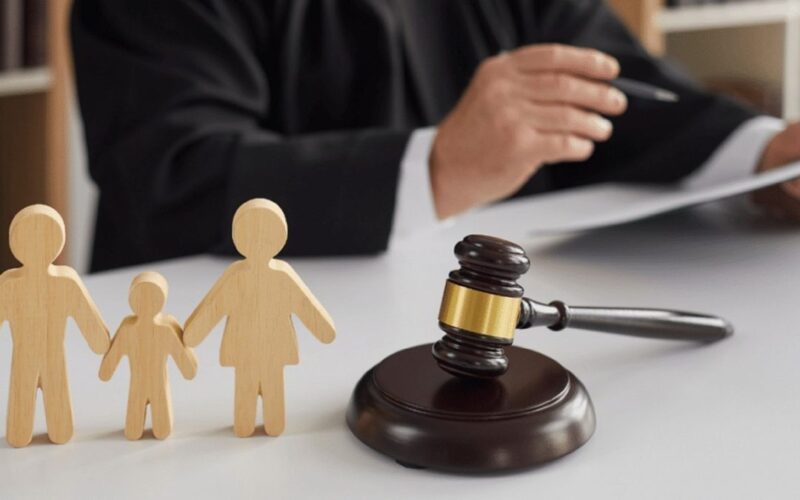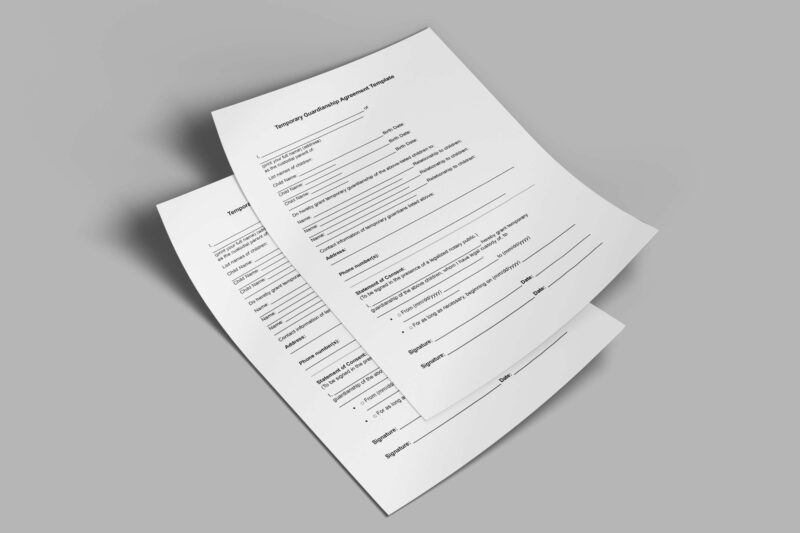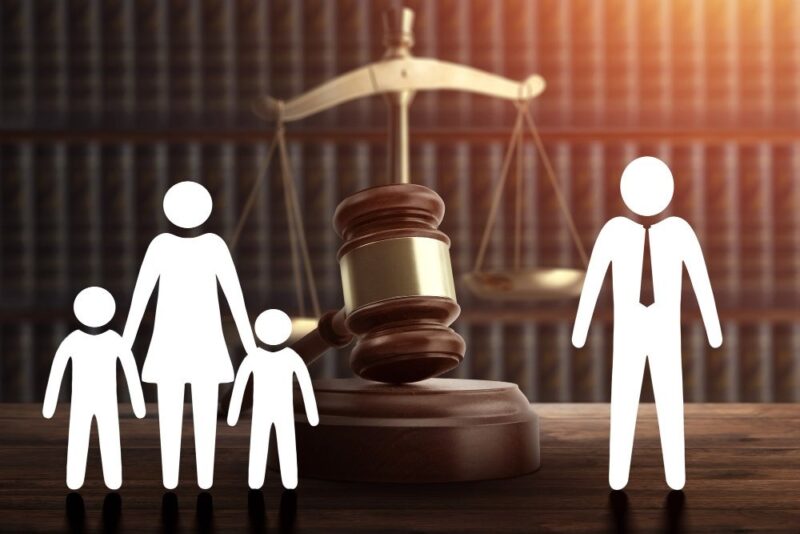Legal guardianship gives one person the authority to make important decisions for someone else who cannot make them independently.
That could involve a minor child, an elderly adult, or a person with disabilities. If you’re trying to figure out how to do this properly, the legal process may feel intimidating.
You don’t need to be an expert to move forward.
You just need clear steps, the right support, and a firm understanding of what matters most.
Key Highlights
- Legal guardianship grants decision-making power over health, education, and personal affairs
- Court approval is essential in most guardianship situations
- Parental consent may simplify but not eliminate legal steps
- Not all guardianship is permanent—some are temporary or limited
- A family law expert can help navigate specific legal procedures
- Documentation and eligibility requirements vary by region
What Legal Guardianship Really Means

Legal guardianship allows someone to make decisions for another person who can’t do so alone. Most often, this concerns minors whose parents cannot provide care due to absence, illness, or death. In other cases, it could involve adults with cognitive impairments or severe medical conditions.
The guardian takes on responsibilities like medical decisions, school enrollment, housing, and daily care.
n some states, guardians can also make financial decisions, but that may require a separate court process for conservatorship.
Legal guardianship isn’t the same as adoption. Parental rights may still exist in some forms of guardianship.
It’s often temporary, although it can extend to adulthood depending on the circumstances.
At Kabir Family Law, specialists handle guardianship and complex family law cases with deep care and precision.
Their team matches you with a legal expert who listens and understands the urgency and sensitivity of your case.
Who Can Become a Legal Guardian?
Courts look for people who can offer a stable, supportive environment. Guardians are usually relatives—grandparents, aunts, uncles, or older siblings.
In rare cases, a trusted family friend may also be appointed.
Key eligibility factors include:
- Legal adulthood (over 18)
- Financial stability
- Physical and mental ability to care for the dependent
- No recent criminal history involving abuse, neglect, or serious offenses
The court may require a background check and home visit to verify all criteria. Family law courts do not approve guardianship lightly.
Everything must serve the dependent’s best interests.
First Step: Filing a Petition
To begin the process, you must file a petition with the local family court. You can get the proper forms online or through the courthouse.
The petition must outline why guardianship is needed, who will act as the guardian, and whether the child’s parents are alive or reachable.
If parents agree to the guardianship, they must sign legal consent forms.
If not, you’ll need to show evidence that guardianship is necessary despite their objections. In some cases, this requires presenting documentation of abuse, neglect, incarceration, or absence.
A judge will not grant guardianship without hearing both sides. If a parent contests it, the case may stretch over multiple hearings. That’s why proper preparation is key.
The Importance of a Court Hearing

Once your petition is filed, the court sets a hearing date. You’ll receive a notice with all the details.
The hearing gives the judge a chance to ask questions and assess whether guardianship is truly in the dependent’s best interest.
At the hearing, the judge will review:
- Relationship between the guardian and dependent
- Reasons the current parents or caregivers cannot fulfill their role
- The dependent’s current living situation
- Any criminal background, financial situation, or mental health concerns
If both parents consent and everything checks out, approval may happen on the first court date. But if the case is contested or lacks documentation, expect delays.
During the court process, it’s wise to work with legal professionals who understand your situation.
When you’re unsure what the court needs, they can step in, explain the process clearly, and help you avoid costly mistakes.
Types of Guardianship You Should Know
Not all guardianship situations are the same. Your legal path depends on what kind of authority is required and how long it needs to last.
Courts usually distinguish between three types:
Temporary Guardianship
This applies when short-term care is needed. Maybe a parent is hospitalized or deployed.
Temporary guardianship can cover weeks or months. It ends once the parent returns or the original issue is resolved.
Permanent Guardianship
Permanent doesn’t mean lifelong, but it lasts until the minor turns 18 or the court ends it.
It gives the guardian legal rights similar to a parent without terminating the birth parent’s rights unless separately ordered.
Limited Guardianship
Courts use this when the dependent can manage some affairs but not others.
For instance, a special-needs teenager might need help with healthcare but not daily living. The guardian’s role is restricted by court order.
Documentation and Legal Requirements

Expect to provide several forms of documentation, including:
- Birth certificate of the dependent
- Identification for the guardian
- Proof of residency
- Medical or psychological records (if applicable)
- Consent letters (if available from parents)
- Any existing custody or family court orders
Some regions may also request letters from teachers, counselors, or doctors to support the need for guardianship.
The more complete your file, the faster the court can act.
What Happens After Court Approval?
Once guardianship is approved, the court issues legal documents affirming your authority. These papers allow you to:
- Enroll the dependent in school
- Authorize medical treatment
- Access health records
- Apply for benefits (depending on eligibility)
- Make decisions about housing and daily life
Keep certified copies of the court order. Schools, hospitals, and government offices often ask for proof of guardianship before granting access or support.
Some courts may schedule follow-up reviews. Others may require regular reports about the dependent’s welfare.
Always comply with deadlines and updates to keep your guardianship valid.
Can Guardianship Be Contested or Revoked?

Yes. A parent or interested party can request to end or modify the guardianship. This requires a formal motion and a new court hearing.
The court will again evaluate what’s best for the dependent.
You could also request to resign as a guardian if you’re no longer able to fulfill the role. In that case, the court will find a replacement if necessary.
Don’t abandon your post without legal closure—doing so can create serious legal and personal consequences.
Legal Help Speeds Up the Process
The legal system is complicated. Family court is no exception. Mistakes in filing, poor documentation, or missed hearings can set you back weeks—or months.
A skilled family lawyer can:
- Draft and file your petition correctly
- Help you collect relevant documentation
- Represent you at court hearings
- Negotiate with parents or other parties if needed
You don’t need to handle all of it alone. If your case involves special circumstances like cross-border issues, missing parents, or emotional disputes, professional guidance becomes even more important.
Conclusion
Legal guardianship gives you power to protect someone who can’t protect themselves. It demands careful paperwork, court approval, and a deep sense of responsibility. Every detail matters—from your background check to your courtroom testimony.
You must act with clarity. Gather your documents. File the correct forms. Get the court involved. And don’t hesitate to involve a trusted expert when needed. Legal support can turn confusion into confidence.
The court won’t hand out guardianship lightly. But if you’re the right person with the right intentions—and the right preparation—you can secure a stable future for someone who needs you.


